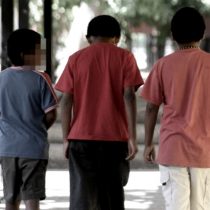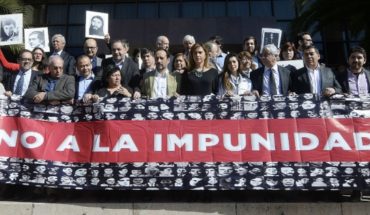
A few days ago, audios with cries for help from minors viralized at a Sename house in Providence. The institution called the facts a “protocol error”, but different civil society actors have warned that this would be a systemic problem.
The truth is that in judicial matters we see a structural fallacy that the authority should take over. In reviewing the various laws issued in Chile, prior to and after the subscription of the Convention on the Rights of the Child, there is a recognition of the State assuming as its own the duty of guarantors of those rights. However, the same State has had hesitant and late behaviour in the dictation of rules that are in line with current times and, in particular, the guiding principle of the best interests of the child.
An iconic case is that of Cristóbal Cabrera Morales, nicknamed “El Cisarro” (although he does not like that nickname), who began to delinquery at age 9 (today he is 20). Where appropriate, and in so many others, the various actors or bodies involved in the system – such as the Sename and the Family Courts – have not had the capacity to react to effectively grant the protection and protection of the rights of our children and adolescents (NNAs). As a sample, a button: when Christopher wanted to follow an impulse control treatment, he was given time for a consultation six months after it was required.
Why say the case of Amber Cornejo, where we were all stunned by the atrocities he suffered and the fateful result. With it, the system also failed, highlighting our state’s perpetual debt to the NNA.
Thus there are plenty of examples, to which is added the last viralization of the sename audios. Again, we freak out and the same criticisms emerge. But there’s nothing new here. The latest development in the legal aspect was in 2018, when the Ombudsman’s Office of Children was created, but the much-desired structural reform of the Sename still sleeps. Meanwhile, NNA in their various spheres continue to be violated.
However, it must be clear: the system is not “sick” only because of the inoperability of the Sename. The fallacy is absolute. No law will be effective if all actors fail to recognize that debt effectively.
The solution? For the protection of our NNA to be effective, discussion must necessarily take place at the constitutional level. At that level, it is key to recognize your rights in their different areas. Since the Constitution, as the basis of duly guaranteed rights, institutional change will be possible that is capable of fully satisfying that protection. Otherwise the checkout will remain alive and dormant.
Taking advantage of the constitutional process that will begin promptly, we hope that constituents will be able to recognize that our NNA must be recognized as subjects of law. From there, any reform can be effective.
The content poured into this opinion column is the sole responsibility of its author, and does not necessarily reflect the editorial line or position of El Mostrador.





